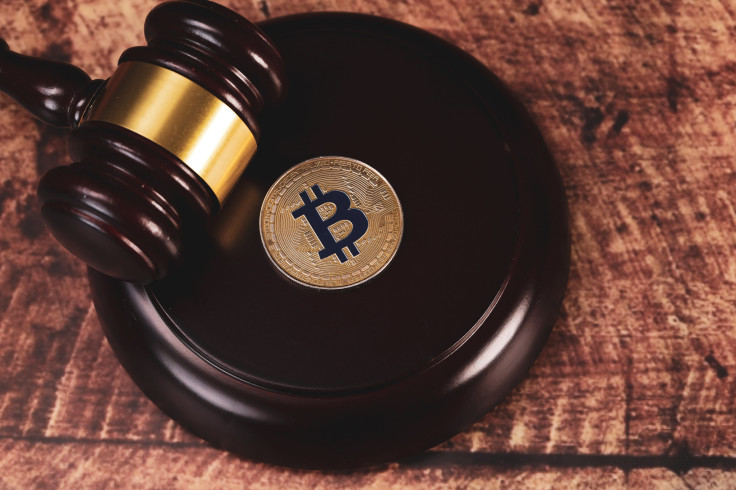US House Members Spar Over The Future Of DeFi, Waters Hits Trumps' Project

KEY POINTS
- Rep. Hill said he believes decentralized technology can help improve U.S. financial services
- Rep. Lynch said DeFi is 'most attractive' to illicit actors, citing a U.S. Treasury report
- Rep. Waters slammed the Trumps' new DeFi project, World Liberty Financial
- Rep. Flood called DeFi a fascinating technology that will cut off intermediaries
- Rep. Nickel urged his colleagues to focus on finding 'common ground' toward bipartisan legislation
The United States has been left behind by some jurisdictions in terms of cryptocurrency and decentralized finance (DeFi) regulation, and on Tuesday, members of the House Financial Services' digital assets subcommittee expressed contradicting views about the emerging technology.
For starters, DeFi covers a broader range of financial services, while cryptocurrencies are digital assets. Crypto has been around for longer, while DeFi is considered a segment that's still in its early stages.
Hill Kicks Off Talks on Positive Note
Subcommittee Chair Rep. French Hill, R-Ark., in his opening statement, urged his colleagues to tackle the discussions with an open mind. "This hearing is not just about smart contracts and decentralized protocols. It's about how decentralized peer-to-peer technology can preserve individual freedom and improve our financial services for businesses and consumers alike," he said.
He encouraged subcommittee members to engage with witnesses present in the hearing. He also noted how the House passed FIT21, a proposed bill that seeks the establishment a regulatory framework for crypto. Hill said the bipartisan approach taken in the bill's passing should be applied when discussing DeFi legislation.
Some Members Still See DeFi on a Negative Note
Rep. Stephen Lynch, D-Mass., a ranking member, kicked off the string of concerns from subcommittee members who still view DeFi and crypto either negatively or on a doubtful note.
He said there remains "no consensus definition of DeFi," which makes the industry "difficult to assess." He acknowledged that DeFi has allowed for interoperability and anonymity, but the segment has also become "most attractive" to threat actors. He cited a recent report by the U.S. Treasury Department that revealed how illicit actors laundered illegally-obtained crypto proceeds.
Rep. Maxine Waters, D-Mass., another ranking member, said DeFi posed heightened risks of scams and frauds that can harm consumers. "We've seen this play out in the new DeFi venture that Eric Trump and Donald Trump Jr. plan to launch, called World Liberty Financial," she said.
Republican presidential candidate Donald Trump's sons announced the project last month. The X accounts of Lara and Tiffany Trump were hacked last week by exploiters who posted about a new token claiming to be associated with WLFI.
In DeFi's Defense
Rep. Mike Flood, R-Neb., said he understands that there are different views regarding DeFi, but he believes the main issue is not in relation to digital assets, but the technology behind DeFi.
He particularly discussed Web3, which he said is a fascinating technology that could change the way people deal with various applications every day. "If we have a decentralized web, it would disempower the big tech intermediaries that wield so much influence today," he pointed out.
He used YouTube as an example, saying a decentralized web will "cut out" the platform as an intermediary, making creators "own what they create," which then means they keep the value of their hard work. He said DeFi is an "opportunity" for the American people.
A Bipartisan Issue
While some of the ranking members squabbled over the pros and cons of DeFi, Rep. Wiley Nickel, D-N.C., said it all boils down to the issue at hand – legislation that will both support innovation and protect American consumers.
"As with all new technology, there are risks," he acknowledged, but added that he hopes Congress can learn more about the technology and come together to address how risks can be mitigated while ensuring that innovation isn't stunted since he believes DeFi can pave the way for a "more inclusive financial system."
"It's important that DeFi remains a bipartisan issue. I urge my colleagues to find common ground in supporting both innovation and consumer protection," he said.
Republicans and Democrats have yet to find the common ground Nickel mentioned in delivering the country's first crypto- or DeFi-centric law. It remains to be seen how the elections will affect legislative efforts toward crypto and DeFi regulation.
© Copyright IBTimes 2024. All rights reserved.






















